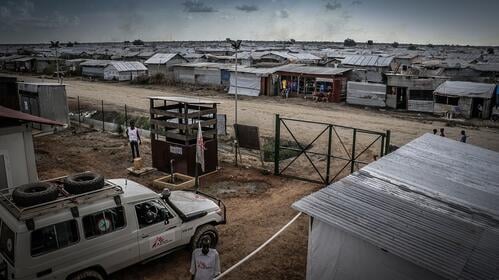By Judy Maina
NAIROBI. Kenya – The United Nations has strongly condemned an airstrike that struck a hospital operated by Médecins Sans Frontières (Doctors Without Borders) in Old Fangak, South Sudan, early Saturday, killing at least seven civilians and injuring more than 20 others in what UN officials called a blatant violation of humanitarian law.
The assault, which occurred in the early hours of May 3 in Jonglei State, decimated a vital medical facility serving a population of more than 100,000, disrupted critical health services, and forced aid organizations to withdraw staff from the increasingly volatile region.
“This attack is appalling,” said Marie-Helene Verney, the acting UN Humanitarian Coordinator for South Sudan.
“People in these areas are already battling flooding, food shortages, and disease. The destruction of critical health infrastructure and continued fighting puts innocent South Sudanese lives at risk.”
The strike destroyed the hospital’s supply store, wounded several patients, and led to the mass displacement of the town’s residents.
Aid teams from multiple local and international organizations have since evacuated much of their staff. Some patients have been relocated to alternate sites within Fangak County, where the UN is currently airlifting emergency medical supplies to prevent further deterioration of care.
This is the latest in a string of attacks on health facilities in the region. Hospitals in Ulang and Nasir, both located in neighboring Upper Nile State, have also come under fire in recent weeks.
In many cases, these were the only functioning health centers for miles. The United Nations says the attacks not only violate international humanitarian law but have life-altering consequences for the region’s most vulnerable.
The consequences are particularly severe for women and children, the UN noted. With medical care suspended, access to maternal, sexual, and reproductive health services is now dangerously limited.
Equally troubling, support services for survivors of sexual violence—a persistent issue in South Sudan’s ongoing conflict—have been halted indefinitely.
Between January and April this year, the UN documented at least eight additional attacks on health infrastructure in Upper Nile, including aerial bombings of Jikmir and Kuich health centers, looting, and the destruction of cold chain systems vital for vaccine storage.
The escalation has driven more than 130,000 people from their homes in Nasir, Ulang, and now Fangak counties in just two months, according to UN estimates. Many more remain trapped, with limited or no access to food, healthcare, or livelihoods.
“These are not just statistics. These are lives being upended, families being torn apart,” said Verney. “We call again on all parties to immediately end the violence and ensure the protection of civilians and humanitarian workers.”
She further urged all armed actors to guarantee safe, unfettered access for humanitarian organizations to reach communities in need—a call that has become increasingly urgent as South Sudan’s humanitarian crisis continues to spiral.



